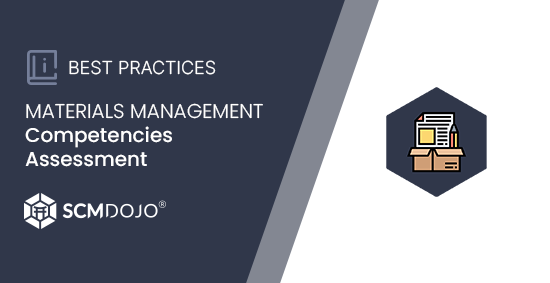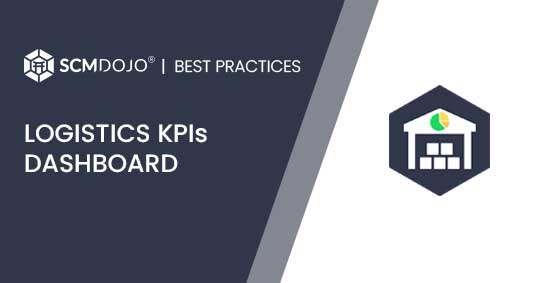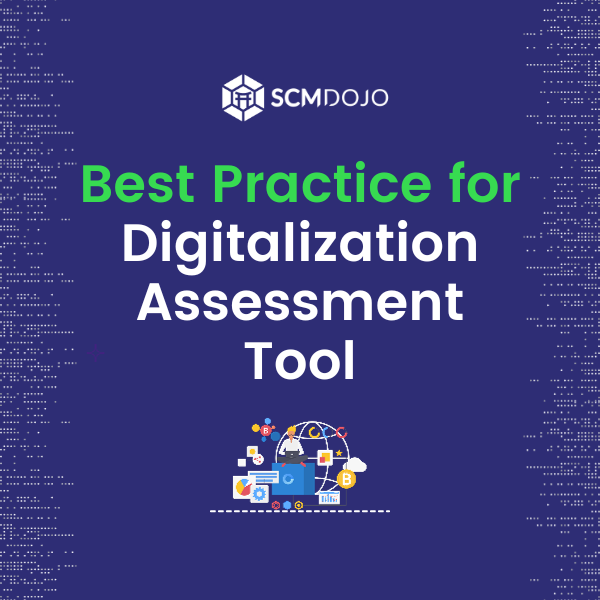Managing the supply chain involves the delicate art of aligning your product supply precisely with customer demand. A myriad of professionals within the field ensures timely deliveries from suppliers and orchestrates manufacturing processes to meet your requirements, contributing to a rewarding career path in supply chain management.
That is to say, there isn’t one single career in supply chain management. Instead, you can choose to concentrate on the planning side of the equation, focus on logistics, or specialize in production.
But what’s the difference between those career paths? And how can picking one over another impact your choice of major? If you’re an undeclared freshman, this is the blog post for you. Let’s break down the six career paths in supply chain management.
A word of advice: choosing your major isn’t something you should take lightly. Take your time exploring career paths before making a commitment. Meanwhile, all those essays you need to write can be set aside for now. That’s where essay writers online come in! They can assist you in managing your workload, allowing you to focus on evaluating your options and choosing the best major for your future.
1. Planner
- Annual salary: $72,800 (median)
- Required degree: Bachelor’s
Every organization’s supply chain management begins with planning. This is where the organization has to determine how much it needs to produce – and how it will do it. Planners do exactly that. They can also be in charge of mapping out logistics for transporting the supply and fulfilling orders.
Planning roles include:
- A supply chain planner analyzes performance and improves processes.
- A demand planner estimates the future demand for given products. (Do check out our Demand Planning Ultimate Guide)
- A production planner ensures the required manufacturing output meets the demand.
- A capacity planner optimizes production capacity.
- A logistics resource planner coordinates workers and transport fleets to fulfill customers’ orders.
- A load planner compiles customers’ orders into truckloads and plans delivery routes.
In addition to these roles, planners often play a crucial role in emergency management. They analyze risks and prepare strategies to mitigate supply chain disturbances. Their foresight is crucial in maintaining the smooth operation of the supply chain.
Most planners opt for a supply chain degree. Yet, you can also secure a position in this career with a business administration, finance, or economics major.
Successful planners have substantial opportunities for career advancement, often moving into senior managerial roles where they oversee larger segments of the supply chain or entire operations. They are also well-positioned to ascend to executive positions, such as director of supply chain management.
2. Materials Manager
- Annual salary: $110,340 (median)
- Required degree: Bachelor’s
Materials managers ensure that everyone across the supply chain has enough resources to work efficiently. They are in charge of purchasing, procurement, and sourcing. Their responsibilities include:
- Negotiating and entering into contracts with suppliers
- Zeroing in on the material and capacity requirements
- Creating production schedules
- Managing purchasing orders
- Aligning sourcing and inventory requirements with the demand and/or sales plan
In this area, materials specialists aren’t the only role available. You can also secure a job as:
- Strategic sourcing manager
- Purchasing agent
- Procurement specialist
- Commodities specialist
According to the Association for Supply Chain Management, the share of Bachelor’s degree graduates is lower in this career path than in planning (65% vs 75%). Around a fourth of specialists enter the field with a graduate degree. As for majors, the top ones are:
- Business administration
- Engineering
- Supply chain
- Operations management
The role of the manager is integral to the success of the supply chain. Their ability to balance cost, quality, and supply chain sustainability directly impacts the overall success of the organization.
To Improve your Materials Management Comptencies, Download our Assessment Tool.
3. Logistics Manager
- Annual salary: $100,000 (median)
- Required degree: Bachelor’s
Logistics specialists are in charge of transporting and distributing the organization’s inventory. They’re the ones making sure the right shipment makes it from point A to point B on time. Logistics in this context can refer to both delivering orders to customers and moving the company’s inventory (e.g., raw materials) between its sites.
Besides being a logistics manager, you can consider the following five jobs in logistics:
- Transport manager
- Reverse logistics specialist
- Inventory controller
- Warehouse specialist
- Logistics director
While most logistics managers have a Bachelor’s degree, almost a third (32%) have a Master’s one. Common Bachelor’s degrees for this career path are:
- Business administration
- Supply chain management
- Engineering
If you’re already planning your Master’s studies, consider business administration, supply chain, and operations management programs.
Successful logistics managers can potentially get higher-level positions, such as vice president of operations or chief operations officer. With their deep understanding of supply chain dynamics, logistics managers are also well-suited for roles in global supply chain management.
So, a career in logistics management offers diverse opportunities for advancement and specialization.
With our customizable Logistics KPI Dashboard Excel Template, you can obtain a detailed view of your business’s Current Performance versus Target and the Previous Year’s performance.
4. Supply Chain Manager
- Annual salary: $114,750 (median)
- Required degree: Master’s
Now, let’s discuss the most obvious career path: supply chain manager. They supervise the whole operation, from forecasting demand and planning production to procurement and logistics. Think of them as the top executives who coordinate processes on a large scale.
Supply chain managers are typically in charge of:
- Planning and forecasting sales and operations, as well as materials requirements
- Managing customer issues to improve customer experience
- Aligning processes with the demand across the board
- Dealing with issues in production and sourcing
- Estimating and tracking operational and economic performance
- Managing risks
This career path, therefore, not only demands a deep understanding of supply chain mechanics but also offers significant opportunities for leadership and influence in the broader business landscape.
Due to the intricacy of the job, the median pay is also the highest. However, you’ll probably need to plan for obtaining a Master’s degree in:
- Business administration
- Supply chain management
- Engineering
As for your choice of major now, the list of the top Bachelor’s degrees for this career looks the same.
In the long term, supply chain managers often progress to executive roles like chief supply chain officer or even CEO, where their understanding of the supply chain can influence the strategic direction of the company. Their expertise also makes them ideal candidates for board positions or high-level consulting roles.
5. Procurement Specialist
- Annual salary: $68,000 (median)
- Required degree: Bachelor’s
Procurement specialists are responsible for the acquisition of goods and services necessary for a company’s operations. Their role involves sourcing and purchasing high-quality products at competitive prices.
The key responsibilities include:
- Build and maintain strong relationships with suppliers, negotiating contracts and managing partnerships
- Conduct market and delivery system analyses to evaluate the availability of necessary goods
- Organize the disposal of excess materials
- Analyze market trends to identify the best sources of goods and services
- Keep accurate records of orders placed and materials received
- Verify that contracts align with company policies
- Minimize risks associated with the acquisition of goods and services
- Work closely with inventory teams to ensure optimal stock levels
In addition to these roles, procurement specialists play a significant role in crisis management, where they have to quickly find alternative suppliers or solutions in case of supply chain disruptions. Their skill to adjust and resolve issues is crucial in maintaining operational continuity.
Education-wise, most procurement specialists major in the following areas:
- Supply chain management
- Business
- Economics
Relevant certifications, such as the Certified Purchasing Professional, can also be advantageous.
The career path for procurement specialists offers bright prospects with potential for progression into higher management positions. Their expertise is also transferable to a variety of industries, making them valuable assets in any business context.
6. Customer Service Specialist
- Annual salary: $77,500 (median)
- Required degree: Bachelor’s
Customer service specialists in supply chain management play a critical role in ensuring customer satisfaction and loyalty. They serve as a crucial link between the company and its customers, managing inquiries, addressing problems, and offering details about products and services. Their role is pivotal in maintaining a positive image of the company.
The role description entails the following responsibilities:
- Handling customer questions and concerns regarding orders, deliveries, and services.
- Resolving problems related to shipping, delivery, or product quality
- Utilize customer interactions as opportunities to promote the business and increase awareness
- Overseeing the order process from placement to delivery, ensuring accuracy and efficiency
- Collecting feedback from customers to enhance products, services, and the efficiency of supply chain operations
- Keeping customers informed about product availability, shipping dates, and any potential delays
- Providing support after purchase, including handling returns, exchanges, and refunds
For this role, you need to have a Bachelor’s degree in business administration, communications, or supply chain management. Skills in problem-solving, communication, and customer relationship management are highly valued.
A customer service specialist plays an essential role in upholding the supply chain’s integrity and achieving customer satisfaction. Their efforts significantly influence the company’s image and foster customer loyalty.
Final Thoughts
Although getting a degree is a crucial prerequisite to securing a job in one of these career paths, it’s not the only ingredient in the recipe for a successful career.
To advance in this field, you need to develop strong communication, project management, and analytical skills. You’ll also need solid knowledge of automation and tech in general.
So, while you have time for it, consider obtaining an APICS certification or getting accredited with the International Supply Chain Education Alliance (ISCEA).
Of course, these undertakings will also take time – a lot of it. But don’t let tedious assignments stand in your way. You can always turn to the best research paper writing service to take some of them off your plate. And then, you’ll have the time you need to invest into becoming an appealing job applicant!





